On the morning of June 21, continuing the 7th Session Program of the 15th National Assembly, at the National Assembly House, under the chairmanship of National Assembly Chairman Tran Thanh Man , the National Assembly discussed in the hall the draft Law on Juvenile Justice.

Participating in the discussion, National Assembly Deputy Le Thanh Hoan, full-time member of the National Assembly's Law Committee (Thanh Hoa Province National Assembly Delegation) said that international research shows that exposure of minors to formal criminal proceedings can lead to the repetition of crime cycles. It is also acknowledged that some criminal measures for criminal behavior, such as arrest and imprisonment, can further promote crime, and many Western scholars believe that prison is a "crime university", because it allows criminals to learn more tricks and skills to commit crimes, as well as create and maintain criminal networks later. This may be especially true in the case of minors, who, due to their immaturity, are easily influenced by friends and easily pick up bad habits. As a result, separate criminal justice systems and separate juvenile detention facilities have been established in many countries, partly due to the need to prevent juveniles from being influenced by adult offenders.
Therefore, delegate Le Thanh Hoan highly appreciated the preparation of the draft Law on Juvenile Justice by the Supreme People's Court , a specialized law on criminal proceedings and the application of penalties to juveniles, in accordance with international treaties to which Vietnam is a member. At the same time, he agreed with many contents of the review report of the Judicial Committee.
Regarding some specific contents, delegate Le Thanh Hoan commented: Regarding the scope of regulation and name of the law. Based on the scope of regulation of this law, which regulates the handling of diversion, punishment, and execution of sentences for minors who commit crimes; it is necessary to consider adjusting the name of the law to be consistent with the scope of regulation, possibly the Criminal Justice Law for Minors. In case of keeping the name of the law, it is proposed to supplement and adjust it for minors who violate administrative laws and are administratively handled, ensuring consistency, avoiding criminal handling of minors who commit crimes (if diversion measures are applied, when sending to a reformatory school is only the last measure in handling diversion) which is lighter than administrative handling. Because, minors who are administratively handled and sent to a reformatory school, when they violate and meet the conditions, will be immediately applied without diversion handling.
Regarding the basic principles in Chapter 2. Diversion and restorative justice have been applied by many countries, diversion is not intended to bypass the law and justice, but is considered a new measure to maintain justice. “Restorative justice” requires a conflict resolution process with the maximum participation of victims, offenders and the community, to reach a common understanding and agreement on how to remedy the harm, recognize wrongdoing and achieve justice. The draft Law has focused on protecting minors as victims, however, the provisions on protecting the rights of “victims” or “victims”, including adults in general, are still inadequate. We need to avoid the trend, in order to ensure the best interests of minors who commit crimes, which may sometimes be excessively preferential and may violate the basic rights of other individuals in society, especially direct victims. Therefore, it is proposed to add to Article 5 a requirement that measures for diversion outside the community must be agreed upon with the victim.
Regarding the authority to apply diversion measures (Article 53). It is proposed to stipulate under option 2 that the application of diversion measures is only carried out by the Court, but not only at the request of the investigation agency or the Procuracy, but the Court has the full right to consider whether or not to apply diversion measures based on a comprehensive review of the case, because Vietnam has a criminal policy and criminal procedure that are somewhat different from other countries.
According to Article 31 of the Constitution, a person accused of a crime is considered innocent until proven guilty in accordance with the procedures prescribed by law and a court verdict has come into legal effect. Therefore, if the authority to apply diversion measures is assigned to the investigation agency or the Procuracy, it means assigning the authority to these two agencies to decide whether the minor is guilty. Because only when guilty can diversion measures be applied. This is inconsistent with the principles of the Constitution (especially in cases where a person has been charged) and may lead to inconsistent application by the agencies conducting the proceedings.
Regarding the case of changing the diversion measure (Article 81). Accordingly, a person who is subject to one of the diversion measures in the community can be changed to apply the educational measure at a reform school if it is considered that the diversion measure in the community does not achieve the purpose of education and reform when they intentionally violate their obligations 1 or 2 times or more during the time of performing their obligations.
So, if the time of the person implementing the community diversion measure commits a violation when he/she is 18 years old, how will it be handled? Is the extension reasonable? Because according to the principle in Clause 4, Article 40, the diversion measure will not be applied if at the time of consideration the offender is 18 years old. Along with that, it is necessary to review and reconsider the content of this change in the diversion measure, because the measure of sending to a reformatory school will not be applied if that person is 18 years old or older.
Quoc Huong
Source: https://baothanhhoa.vn/dbqh-le-thanh-hoan-tham-gia-gop-y-ve-du-an-luat-tu-phap-nguoi-chua-thanh-nien-217379.htm







![[Photo] Prime Minister Pham Minh Chinh and Prime Minister of the Kingdom of Thailand Paetongtarn Shinawatra attend the Vietnam-Thailand Business Forum 2025](https://vphoto.vietnam.vn/thumb/1200x675/vietnam/resource/IMAGE/2025/5/16/1cdfce54d25c48a68ae6fb9204f2171a)




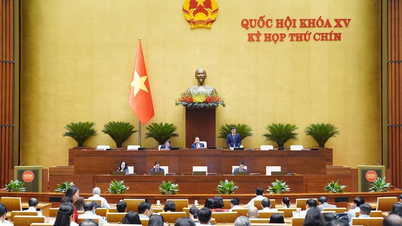

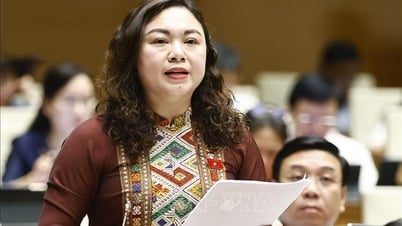
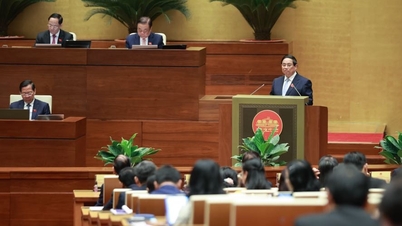
















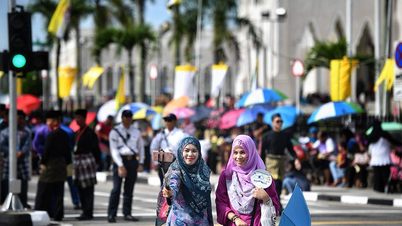
![[Photo] President Luong Cuong receives Prime Minister of the Kingdom of Thailand Paetongtarn Shinawatra](https://vphoto.vietnam.vn/thumb/1200x675/vietnam/resource/IMAGE/2025/5/16/52c73b27198a4e12bd6a903d1c218846)









































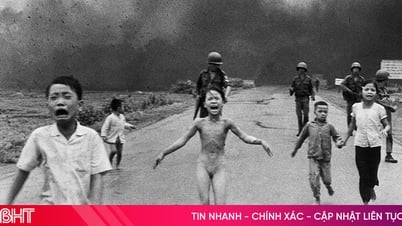



















Comment (0)